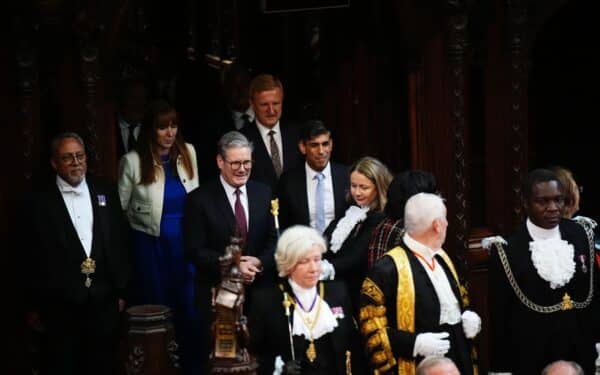Everyone in Britain knows the Meerkats, the fat opera singer and the dancing robots. Years of constant TV adverts have seared these characters onto our brains.
Today they’re under investigation. That’s good news for consumers. Despite the fluffy, cuddly image they try and portray, these companies are hard-edged businesses who make huge amounts of profits. And they have serious questions to answer.
The biggest regulator in the country – the Competitions and Markets Authority – has announced an investigation into them over concerns about whether consumers can trust the information they provide and the lack of transparency of their business model.
This should have come sooner. Two years ago the biggest of these sites – household names like MoneySupermarket, Compare the Market, Go Compare, uSwitch and Confused – were caught red handed hiding the cheapest gas and electricity deals from consumers online. Working with the Sun newspaper, we at TheBigDeal.com painstakingly researched what deals these five sites showed people over a 13-week period. All of them hid the cheapest deals from consumers at some point, often for weeks on end.
A couple of months later they were caught doing exactly the same thing over the phone. When asked what the cheapest deal was they did not answer truthfully.
There was public outcry and an investigation by the Energy Select Committee. Ofgem clamped down on the practice. They forced the likes of Compare the Market to, well, compare the market, rather than just compare the bit of the market that pays them a commission.
Too often price comparison sites do what is best for them not what is best for consumers. This is important because price comparison websites have huge market power. 75% of people who buy their car insurance online do it via a price comparison website. In the energy market over half of all switching is done through these sites. Up from just a quarter a few years ago. And incredibly 80% of all switches go through just two companies: uSwitch and Moneysupermarket. uSwitch do a staggering 50% of all energy switches. People (rightly) complain about the monopoly the Big Six have in the energy market. But there is an even worse monopoly in the energy switching market.
When so much business gets done through these sites they need to act fairly and transparently. Especially when they spend millions on advertising campaigns promoting a “consumer champion” style image. It’s no wonder that almost a third of people (30%) according to YouGov are unaware that these sites are paid by companies for each switch.
There needs to be considerably more transparency over the way these firms operate. In particular, there should be much more openness about their business models and the commissions they charge. Transparency is a prerequisite for trust.
And trust is what it all boils down to. Amid all the commercial noise of the market, consumers need a trustworthy signal: what truly is the best deal for me? Contrary to many consumers’ expectations, comparison sites rarely offer that signal.
Henry de Zoete is the co-founder of TheBigDeal.com, a consumer collective which uses the mass bargaining power of hundreds of thousands of people to create unique energy deals that people can’t get on their own. Started in 2014, it now has over 200,000 members and saved them a total of £12 million. TheBigDeal.com is a start-up business and charges a commission to energy companies. Unlike price comparison websites we are 100% transparent and publish the exact amount of our commission. For our current switch that is £40 for a dual fuel (both gas and electricity) switch. This compares to £70 to £100 for the main price comparison websites.



